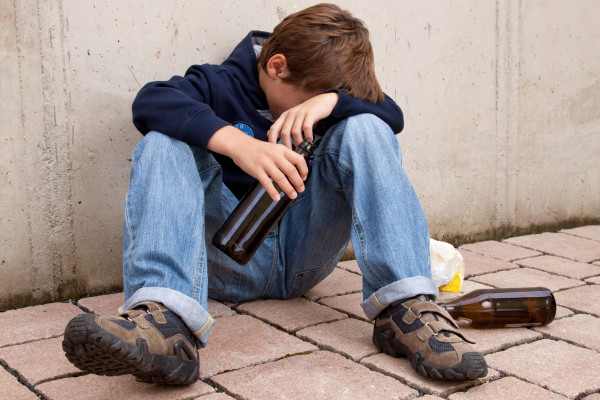Lookout For Alcohol Use In Kids
As stepdads, one of our greatest desires is the children in our families lead healthy, happy lives. When our children enter their teen years, it’s critical to be on the lookout for some of the biggest health threats they may face.
Recent studies indicate the number of drinkers in the US is on the rise. Binge drinking is also a growing trend.
With youth, binge drinking is associated with cognitive damage, since the brain continues to develop through adolescence. Alcohol consumption can affect a young person’s ability to learn, as well as their memory.
The study, led by Dr. Bridge Grant of the National Institutes on Alcohol Abuse and Alcoholism, found adults from lower income families, as well as Native Americans, were more likely to have AUDs, yet findings in young adults are also alarming.
As parents, there’s plenty we can do to help our young teens kick the habit of alcoholism before it has permanent and damaging effects on their lives.
Professional Help
First of all, if you suspect your stepchild has an AUD, they would benefit greatly from professional help. Gold standard treatments for alcoholism include the 12 Step Program, individual Cognitive Behavioral Therapy (CBT) and group therapy.
Only about 20 per cent of people with AUDS actually seek help for the disorder which is a worrisome statistic we should work to overcome.
Awareness
Awareness is also important. It is important children feel free to communicate with their parents about any issues going on in their lives, including possible pressure to drink and binge drink when out with their friends. Parents should share vital information with their children in a way that the message truly “sinks in.”
Many youths would be surprised, and probably interested to know, alcohol abuse is linked to a plethora of diseases they may have to lug with them the rest of their lives if they don’t quit drinking. These include:
- heart disease,
- stroke,
- cancer,
- liver disease,
- chemical dependency
- and alcohol poisoning.
Other Issues
Finally, it is important to be aware AUDs may be hiding other issues; the JAMA study found there were significant associations between AUDS and depression, anxiety and bipolar I disorder. Children and teens who drink may be using alcohol to mask symptoms like sadness, fear or loneliness.
It’s important as parents, we ensure any and all disorders are addressed, to enable those we love to lead a full and healthy life.
It’s estimated eight out of 10 high school students have tried alcohol at least once. People who start drinking alcohol at a young age are more likely to become alcoholics later in life. That’s why it’s important to talk to your stepchildren about the risks of drinking. Get some tips that will make it easier for you to talk to your teen about the dangers of drinking.






